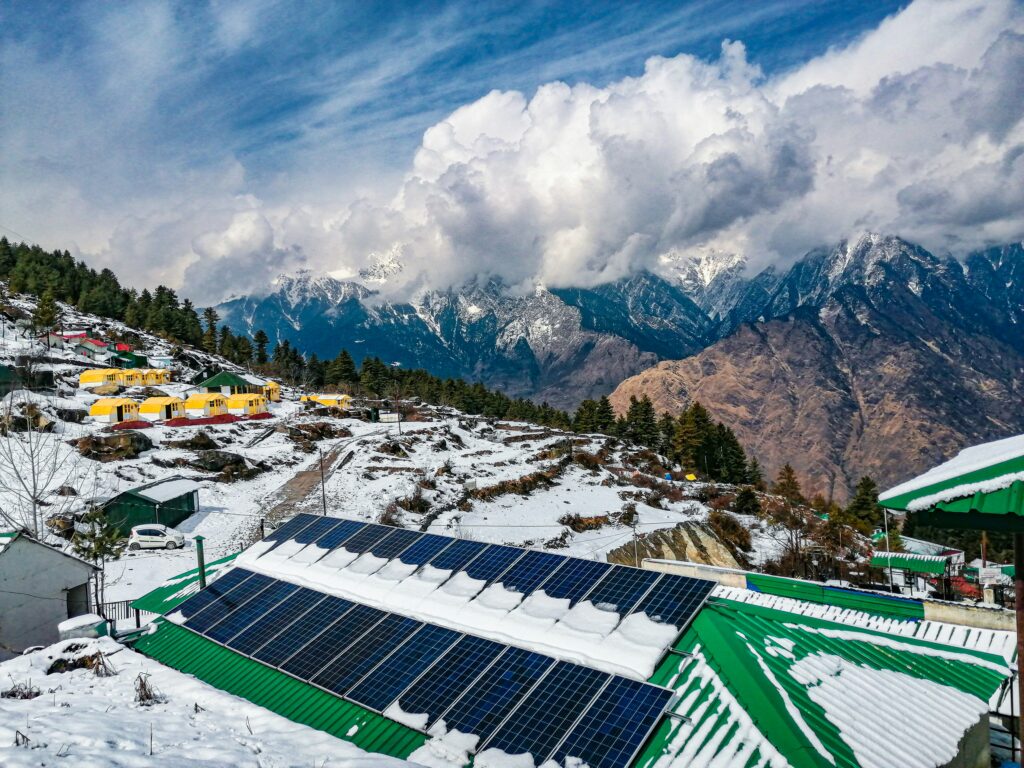(Spoiler: Yes, and here’s why)

When most people think about solar power, they imagine blazing sunshine and cloudless skies — not the grey drizzle and short days of a typical British winter. It’s no surprise then that one of the most common questions we hear is:
“Do solar panels even work in the UK winter?”
The answer is a confident yes — and in this post, we’ll explain why solar is far from a fair-weather investment.
Myth 1: Solar Panels Only Work in Direct Sunlight
Reality: Solar panels generate electricity from daylight, not heat or sunshine.
Even on cloudy days, your panels can produce electricity — just at a lower rate. In fact, Germany (a country with similar weather to the UK) is one of the world’s top solar adopters, proving that solar isn’t just for California and the Mediterranean.
Winter production is lower, sure — but it’s not zero.
How Much Energy Do Panels Generate in Winter?
UK solar panels typically generate 30–40% of their peak summer output during winter months. For example:
- A 4kW system might generate 700–900 kWh in June–August, but
- Around 250–400 kWh in December–February
This still covers:
- A significant portion of daytime usage
- Charging a battery for evening use
- Offsetting grid energy when it’s most expensive

Myth 2: Cold Weather Reduces Efficiency
Reality: Cold temperatures actually improve solar panel performance.
Like most electronics, solar panels operate more efficiently in cooler conditions. Panels lose some efficiency when they overheat — so a crisp, sunny winter day can yield very strong output, sometimes better than midsummer.
Winter Generation Still Helps Offset Carbon and Costs
Even reduced winter output contributes to:
- Lower electricity bills
- Reduced reliance on fossil fuel-based grid power
- Improved carbon footprint year-round
Paired with a solar battery, you can store what’s generated during daylight hours and use it during evening peaks — which is key during winter when daylight is limited.
Bonus: How Battery Storage Helps in Winter
- Charge batteries from low-cost off-peak grid energy (e.g. at night)
- Use stored solar during high-tariff hours
- Increase self-consumption of even limited solar generation
This makes solar + battery systems a smart move even during low-generation months.
The Bottom Line
Solar panels absolutely work in winter — they just work differently. With the right design, smart battery storage, and realistic expectations, your system will contribute valuable savings and sustainability every month of the year.
So don’t let winter myths delay your move to solar. In fact, installing during cooler months means you’re ready to capture maximum benefit when spring and summer hit.

Thinking about going solar?
We’d be happy to assess your property, show you expected generation year-round, and help you decide if solar (with or without batteries) makes sense for your home or business.
📩 Get in touch for a free consultation today.
#UKSolar #WinterSolar #SolarPanelsUK #BatteryStorage #EnergySavings #LucentEnergy #SustainableLiving #SolarMyths
